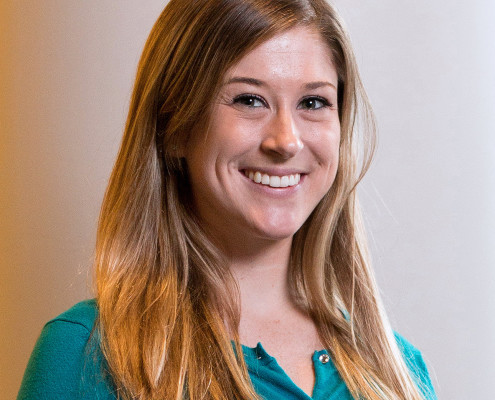How Climate Change Can Make More Children Vulnerable to Human Trafficking
By Colleen O’Day
Hurricane Maria, the worst natural disaster ever to hit Puerto Rico, wipes out the island’s power grid. A heat wave nicknamed Lucifer scorches southern Europe. Hurricane Harvey, the second-costliest Atlantic tropical cyclone in history, submerges Texas and Louisiana under trillions of gallons of rain. Drought again grips East Africa, leaving millions of people short of food and water.

Professor Annalisa Enrile notes that warming
climates may mean more sex tourism.
Natural disasters have always been a part of the weather cycle. But with climate change, the cycles of floods and droughts are expected to grow both more frequent and more severe.
That may well drive more children around the globe into the hands of human traffickers.
Poverty and natural disasters are a recipe for desperation. In 2015, Nepal, where 1 in 5 children under 18 are laborers – one of the highest rates in the world – was rocked by a pair of earthquakes that left some 3 million people homeless. World Vision, GoodWeave, and other nonprofit organizations working on the ground in Nepal found signs that the calamity had led to dramatic increases in child labor and child trafficking.
Global criminal rings exploit any disruption to people’s lives to lure victims into bonded labor, fraudulent adoptions, coerced commercial sex, or outright slavery. Extreme weather exacts the greatest suffering on the world’s poorest people. And children are the most vulnerable of all.
Annalisa Enrile, a professor with the online Doctor of Social Work program at the University of Southern California, sees climate change and human trafficking linked in surprising ways. One example is child sex trafficking, when minors are offered for sex to locals and travelers from abroad.
Global warming increasingly has blurred the change of seasons. More cities and countries, she notes, have become year-round warm-weather destinations.
“Climate change is incorporated into the tourism industry,” Enrile says. Places with hospitable climate, such as the Philippines, draw tourists all year, “which means you have sex tourism all year. We often don’t think about that in terms of trafficking.”
Activist groups say action on climate change and human trafficking are irrevocably intertwined. A quarter of the world’s population lives under threat of growing storm surges and tsunamis, according to Oxfam International. More than 40 million people suffered flooding in just the second half of 2017. An average of 400 “extreme weather events” occur annually – more than one a day.
Enrile is an expert on human trafficking. She says the period following earthquakes, typhoons, and other cataclysmic events is a particularly perilous time for the youngest victims.
Children are left orphaned or get separated from their families, as happened in Haiti following the 2010 earthquake. In Ethiopia and other places of dire poverty, human traffickers and adoption agencies fraudulently pass off some children as orphans. Or desperate parents give up their offspring in exchange for false promises of better care.
Enrile says the chaos that follows natural disasters allows traffickers to swoop in and make off with their victims.
“What happens in all this confusion is it provides the opportunity for traffickers to come in and say, ‘Hey, that kid is mine,’” she says.
According to UNICEF, trafficked children can meet many fates. Some are forced into prostitution. Others are held in domestic servitude. Some are conscripted to fight wars, or toil in mines and other dangerous places for little or no pay. The United Nations says girls and women make up the vast majority of victims of sexual exploitation, which in turn accounts for four-fifths of all forms of human trafficking—about one fifth is labor trafficking
Freedom’s Journey, a resource on human trafficking from USC, notes that children make up a third of all the people who are trafficked. One powerful antidote, the report says, is greater awareness and familiarity with the signs that someone may be a victim. Once we are aware the crime of trafficking has been committed, it’s incumbent upon us to act. As the great British abolitionist William Wilberforce once said, “You may choose to look the other way but you can never say again that you did not know.”
Colleen O’Day, Senior Digital PR Coordinator. Colleen supports community outreach for 2U Inc.’s social work, mental health, and speech pathology programs.



